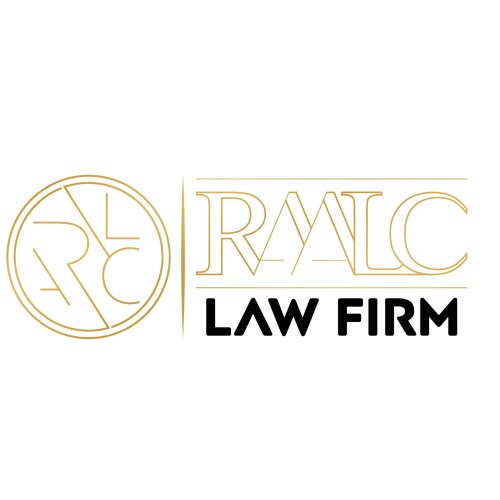Best Landlord & Tenant Lawyers in United Arab Emirates
Share your needs with us, get contacted by law firms.
Free. Takes 2 min.
Free Guide to Hiring a Real Estate Lawyer
Or refine your search by selecting a city:
List of the best lawyers in United Arab Emirates
United Arab Emirates Landlord & Tenant Legal Articles
Browse our 1 legal article about Landlord & Tenant in United Arab Emirates written by expert lawyers.
- Handling Dubai Rental Disputes: A 2025 Guide for Landlords and Tenants
- Introduction: Navigating the 2025 Rental MarketUnderstanding Dubai's Regulatory StructureDubai Land Department (DLD)Real Estate Regulatory Agency (RERA)Rental Disputes Center (RDC)The Legal Framework: Laws No. 26 and 33The Tenancy Agreement and Ejari RegistrationMandatory Registration RequirementsAutomatic Renewal ProvisionsThe 2025 Smart Rental Index RevolutionFrom Static Calculator to Dynamic AI SystemStar Rating System and Property... Read more →
About Landlord & Tenant Law in United Arab Emirates
Landlord and tenant law in the United Arab Emirates (UAE) is a vital aspect of property law, governing the leasing and renting of properties within the country. The legal framework seeks to balance the rights and responsibilities of both landlords and tenants, ensuring fair treatment and resolving disputes effectively. This body of law is crucial for understanding tenancy rights, rental agreements, and the processes surrounding lease renewals, evictions, and disputes. Different emirates within the UAE may have specific regulations, with Dubai and Abu Dhabi being notable for their well-defined legislative structures.
Why You May Need a Lawyer
Engaging a lawyer for landlord and tenant matters can be crucial due to various reasons:
- Lease Agreement Review: Lawyers can help draft or review lease agreements to ensure they are fair and comply with local laws.
- Dispute Resolution: Legal representation is often necessary when disputes arise over rental terms, property maintenance, or eviction notices.
- Understanding Rights and Obligations: A lawyer can clarify the complex legal terminology and help both parties understand their rights and obligations.
- Rent Disputes: Legal assistance can be crucial in resolving issues related to rent increases or delayed payments.
- Termination of Lease: Lawyers can advise on the legalities surrounding breaking a lease or evicting a tenant.
Local Laws Overview
The local laws concerning landlord and tenant relations in the UAE are detailed and vary across emirates. Here are some key aspects:
- Dubai: The Dubai Rental Law, governed by the Real Estate Regulatory Authority (RERA), outlines regulations regarding rental increases, security deposits, and tenant rights.
- Abu Dhabi: The law mandates a standardized rental contract for all leasing activities, and disputes are handled by the Abu Dhabi Rent Disputes Settlement Committee.
- Ajman, Sharjah, and other emirates: Regulations might differ, but the common goal is to maintain fair practices in rental agreements and dispute resolution.
- Eviction Notices: Typically, landlords must provide a written notice and a valid reason for eviction.
- Security Deposits: Laws regulate the handling of security deposits, often requiring them to be refunded promptly at the end of a lease term.
Frequently Asked Questions
What rights do tenants have in the UAE?
Tenants have the right to reside in a property without undue disturbances and to have the property maintained in a habitable condition by the landlord. They also have rights concerning security deposits and renewals.
What should be included in a lease agreement?
A lease agreement should include information on the duration of the lease, rent amount, terms of payment, responsibilities for property maintenance, and procedures for renewal or termination.
How are rental increases regulated?
In Dubai, RERA regulates rental increases using the RERA Rental Index. Rental increases in other emirates are subject to local regulations.
What can a tenant do if a landlord does not carry out necessary repairs?
Tenants should first formally notify the landlord. If the landlord fails to respond, legal recourse is available through rental dispute centers.
Is it possible to break a lease early?
Breaking a lease early may be possible, but usually entails a penalty unless mutually agreed upon. Legal advice is recommended.
What is the process for eviction in the UAE?
Evictions require valid reasons and must follow lawful procedures, including serving a written notice.
How are disputes resolved in landlord-tenant relationships?
Disputes are typically resolved through the relevant emirate’s rental dispute resolution centers.
What is a tenant’s obligation in terms of maintenance?
Tenants are usually responsible for minor maintenance and upkeep; landlords handle major repairs unless specified otherwise in the lease.
Can a landlord withhold the security deposit?
Landlords must have a valid reason to withhold a security deposit, such as damage beyond normal wear and tear.
When is it appropriate to hire a lawyer for tenancy issues?
Hiring a lawyer is advisable for complex disputes, drafting agreements, understanding rights, or when facing eviction.
Additional Resources
There are several resources and organizations that can offer assistance for landlord and tenant issues in the UAE:
- DLD (Dubai Land Department): Provides resources and guidelines on tenancy issues specific to Dubai.
- RERA (Real Estate Regulatory Authority): A division of DLD that handles real estate affairs, including regulations on renting.
- Abu Dhabi Rent Disputes Settlement Committee: Focuses on resolving tenancy disputes in Abu Dhabi.
- Legal Firms Specializing in Real Estate: Offer professional legal advice tailored to individual cases.
Next Steps
If you require legal assistance in landlord and tenant matters, consider taking the following steps:
- Evaluate Your Situation: Clearly define your issue and gather relevant documents and evidence.
- Consult Legal Resources: Utilize online resources and government portals to gain initial insights.
- Contact a Lawyer: Seek a lawyer with expertise in UAE's landlord and tenant laws for specific legal advice and representation.
- Prepare for Legal Meetings: Bring all relevant documents and a clear summary of your situation when meeting with your lawyer.
Lawzana helps you find the best lawyers and law firms in United Arab Emirates through a curated and pre-screened list of qualified legal professionals. Our platform offers rankings and detailed profiles of attorneys and law firms, allowing you to compare based on practice areas, including Landlord & Tenant, experience, and client feedback.
Each profile includes a description of the firm's areas of practice, client reviews, team members and partners, year of establishment, spoken languages, office locations, contact information, social media presence, and any published articles or resources. Most firms on our platform speak English and are experienced in both local and international legal matters.
Get a quote from top-rated law firms in United Arab Emirates — quickly, securely, and without unnecessary hassle.
Disclaimer:
The information provided on this page is for general informational purposes only and does not constitute legal advice. While we strive to ensure the accuracy and relevance of the content, legal information may change over time, and interpretations of the law can vary. You should always consult with a qualified legal professional for advice specific to your situation.
We disclaim all liability for actions taken or not taken based on the content of this page. If you believe any information is incorrect or outdated, please contact us, and we will review and update it where appropriate.
Browse landlord & tenant law firms by city in United Arab Emirates
Refine your search by selecting a city.
















